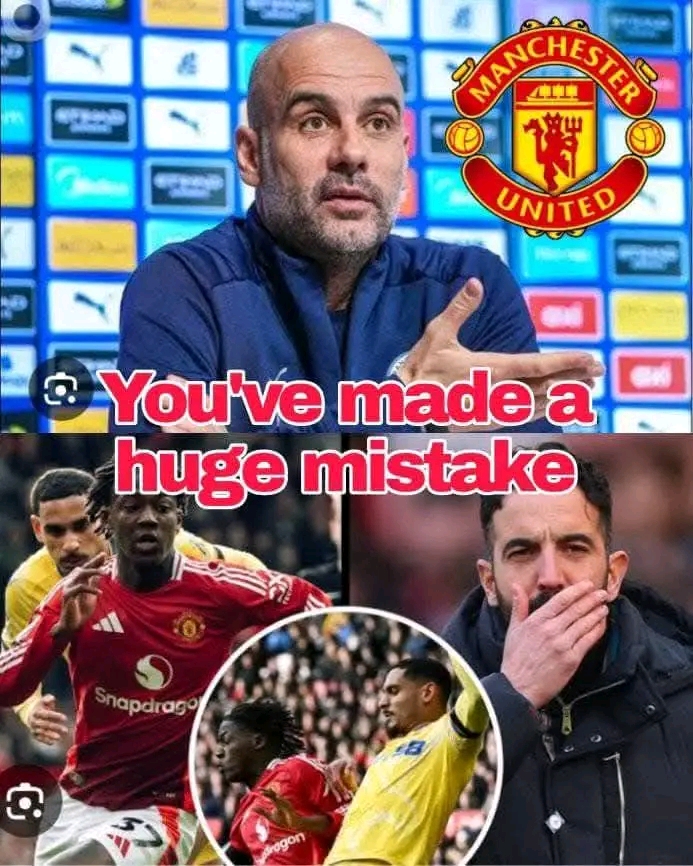Manchester City’s financial conduct is facing unparalleled scrutiny, with the Premier League charging the current champions with 115 alleged violations of Financial Fair Play (FFP) regulations. These accusations span from 2009 to 2018 and involve providing inaccurate financial reports, misrepresenting sponsorship revenue, and failing to disclose managerial wages. The gravity of these allegations has sent shockwaves through English football, raising concerns about the club’s financial practices and its dominance in recent years.
This investigation by the Premier League is the most extensive probe into financial misconduct in English football history. The governing body accuses the club of manipulating financial records to bypass FFP restrictions, enabling them to spend beyond acceptable limits. If proven true, such actions could severely undermine the principles of fair competition within the league.
Many have compared Manchester City’s situation to one of the most infamous football scandals—the 2006 Calciopoli scandal involving Juventus. In that case, Juventus was found guilty of influencing referee appointments to secure favorable match results. Consequently, the club was relegated to Serie B and stripped of two Serie A titles, demonstrating that even the most prestigious clubs are not beyond severe consequences.
While the specifics of the allegations against City differ from Juventus’ actions, the central issue is the same: an alleged effort to gain an unfair edge through illicit methods. Juventus’ punishment set a precedent that no club, regardless of its stature, is immune from scrutiny. This has led to speculation that City could face similarly severe penalties, including relegation from the Premier League.
Despite the seriousness of the accusations, Manchester City has firmly denied any wrongdoing. The club issued an official statement expressing surprise at the charges and highlighting its cooperation with the Premier League’s investigation. “Manchester City FC is surprised by the issuing of these alleged breaches of the Premier League rules, particularly given the extensive engagement and vast amount of detailed materials that the EPL has been provided with,” the statement read.
City’s defense mainly focuses on the claim that the club has been unfairly targeted and that the Premier League’s case lacks substantial evidence. Previously, the club successfully challenged UEFA’s attempt to punish them for FFP violations, overturning a two-year ban from European competitions at the Court of Arbitration for Sport (CAS) in 2020. This history suggests that City is preparing for a vigorous legal battle to clear its name.
However, unlike UEFA, the Premier League operates under a different legal structure, with its independent commission handling cases without outside interference. This means that even if City prevails against UEFA’s sanctions, they could still face severe consequences domestically if found guilty by the Premier League’s investigative panel.
The hearing regarding City’s alleged FFP violations began in September 2024, with the proceedings expected to continue until March 2025. A final verdict is expected later in the year, with potentially monumental consequences for both City and the Premier League. If the commission concludes that City violated financial regulations on a large scale, the penalties could range from substantial fines and transfer bans to points deductions or even expulsion from the league.
The uncertainty surrounding the case has caused significant unease within the football world. Rivals argue that if Manchester City is found guilty, they should face the harshest punishment to preserve the integrity of English football. Others propose that stripping them of past titles, similar to Juventus’ punishment in 2006, could be a just resolution.
One of the main challenges for the Premier League is ensuring that the punishment fits the severity of the alleged crime. If City is found guilty and only faces a financial penalty, critics may argue that such a sanction would not be a strong enough deterrent for clubs willing to violate financial rules in their pursuit of success. On the other hand, a severe punishment such as relegation could establish a precedent that fundamentally alters how financial misconduct is addressed in football.
Pep Guardiola, City’s long-time manager, has previously stated that he would leave the club if it were found guilty of financial misconduct. “If I ever found out that the club lied to me, I would leave,” Guardiola stated in 2023 when the charges were first made public. This statement adds further complexity to the ongoing situation, as the outcome of the case could directly impact Guardiola’s future at the club.
Regardless of the final ruling, the case has reignited discussions surrounding financial regulations in football. The Premier League, which prides itself on being the most competitive and commercially successful league in the world, now faces the challenge of proving that financial fairness is more than just an ideal. A failure to properly address Manchester City’s case could damage the league’s reputation and encourage other clubs to flout the rules.
At the heart of this controversy is the broader issue of wealth disparity in football. Manchester City, backed by the immense financial resources of Abu Dhabi, has risen to become one of the most dominant clubs in modern football. Critics argue that if the club achieved its success through financial misrepresentation, it undermines the principles of fair competition.
Meanwhile, City’s supporters have defended the club, dismissing the charges as part of a coordinated attack by rival clubs and football authorities eager to halt their dominance. They point to UEFA’s failed attempt to punish the club as proof that City is being unfairly targeted, suggesting that the Premier League’s case is politically motivated rather than a genuine effort to uphold financial fairness.
The coming months will be crucial in determining the future of Manchester City. If found guilty, the club could face repercussions that reshape its future and send shockwaves throughout the footballing world. If exonerated, it could lead to further questions about the effectiveness and fairness of football’s financial regulations. Either way, the case is poised to become one of the most defining legal battles in the sport’s history.
For now, the footballing world waits in anticipation of the verdict, which could either reinforce or drastically alter financial accountability in football.










